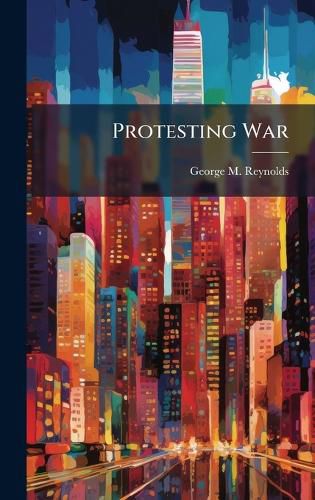Readings Newsletter
Become a Readings Member to make your shopping experience even easier.
Sign in or sign up for free!
You’re not far away from qualifying for FREE standard shipping within Australia
You’ve qualified for FREE standard shipping within Australia
The cart is loading…






Since the divisive Vietnam experience, US Presidents have avoided diplomatic and military intervention in the affairs of other states fearing a negative American public reaction. US involvement in Beirut and Somalia was cut short and the use of ground forces in Kosovo was off the table. As President H.W. Bush concluded in 1991, a 'Vietnam Syndrome' had taken hold of the public. Bush explained this problem in greater detail: 'I don't think that [public] support [for the 1991 Gulf War] would last if it were a drawn-out conflagration. I think support would erode, as it did in Vietnam.'' Additionally, foreign adversaries have also made calculated, strategic decisions on the belief Americans are unwilling to support protracted, bloody conflicts. This was especially true in Osama Bin Laden's calculus when he declared war on the US. In fact, in a 1998 ABC News interview he emphasized the symbolic importance of the 1983 Beirut bombing referring to US soldiers as 'paper tigers.' In a letter to his chief deputy in Iraq, Al Qaeda's number two leader, Zawahiri wrote, 'The aftermath of the collapse of American power in Vietnam, and how they ran and left their agents, is noteworthy.' So, given the Afghanistan War is now longer than the Vietnam War, why have Americans not protested to the same degree? Clearly, there are stark difference between Vietnam and Afghanistan along war rationale, economic sacrifice, and personal connection explanations.
This work has been selected by scholars as being culturally important, and is part of the knowledge base of civilization as we know it. This work was reproduced from the original artifact, and remains as true to the original work as possible. Therefore, you will see the original copyright references, library stamps (as most of these works have been housed in our most important libraries around the world), and other notations in the work.
This work is in the public domain in the United States of America, and possibly other nations. Within the United States, you may freely copy and distribute this work, as no entity (individual or corporate) has a copyright on the body of the work.
As a reproduction of a historical artifact, this work may contain missing or blurred pages, poor pictures, errant marks, etc. Scholars believe, and we concur, that this work is important enough to be preserved, reproduced, and made generally available to the public. We appreciate your support of the preservation process, and thank you for being an important part of keeping this knowledge alive and relevant.
$9.00 standard shipping within Australia
FREE standard shipping within Australia for orders over $100.00
Express & International shipping calculated at checkout
Since the divisive Vietnam experience, US Presidents have avoided diplomatic and military intervention in the affairs of other states fearing a negative American public reaction. US involvement in Beirut and Somalia was cut short and the use of ground forces in Kosovo was off the table. As President H.W. Bush concluded in 1991, a 'Vietnam Syndrome' had taken hold of the public. Bush explained this problem in greater detail: 'I don't think that [public] support [for the 1991 Gulf War] would last if it were a drawn-out conflagration. I think support would erode, as it did in Vietnam.'' Additionally, foreign adversaries have also made calculated, strategic decisions on the belief Americans are unwilling to support protracted, bloody conflicts. This was especially true in Osama Bin Laden's calculus when he declared war on the US. In fact, in a 1998 ABC News interview he emphasized the symbolic importance of the 1983 Beirut bombing referring to US soldiers as 'paper tigers.' In a letter to his chief deputy in Iraq, Al Qaeda's number two leader, Zawahiri wrote, 'The aftermath of the collapse of American power in Vietnam, and how they ran and left their agents, is noteworthy.' So, given the Afghanistan War is now longer than the Vietnam War, why have Americans not protested to the same degree? Clearly, there are stark difference between Vietnam and Afghanistan along war rationale, economic sacrifice, and personal connection explanations.
This work has been selected by scholars as being culturally important, and is part of the knowledge base of civilization as we know it. This work was reproduced from the original artifact, and remains as true to the original work as possible. Therefore, you will see the original copyright references, library stamps (as most of these works have been housed in our most important libraries around the world), and other notations in the work.
This work is in the public domain in the United States of America, and possibly other nations. Within the United States, you may freely copy and distribute this work, as no entity (individual or corporate) has a copyright on the body of the work.
As a reproduction of a historical artifact, this work may contain missing or blurred pages, poor pictures, errant marks, etc. Scholars believe, and we concur, that this work is important enough to be preserved, reproduced, and made generally available to the public. We appreciate your support of the preservation process, and thank you for being an important part of keeping this knowledge alive and relevant.